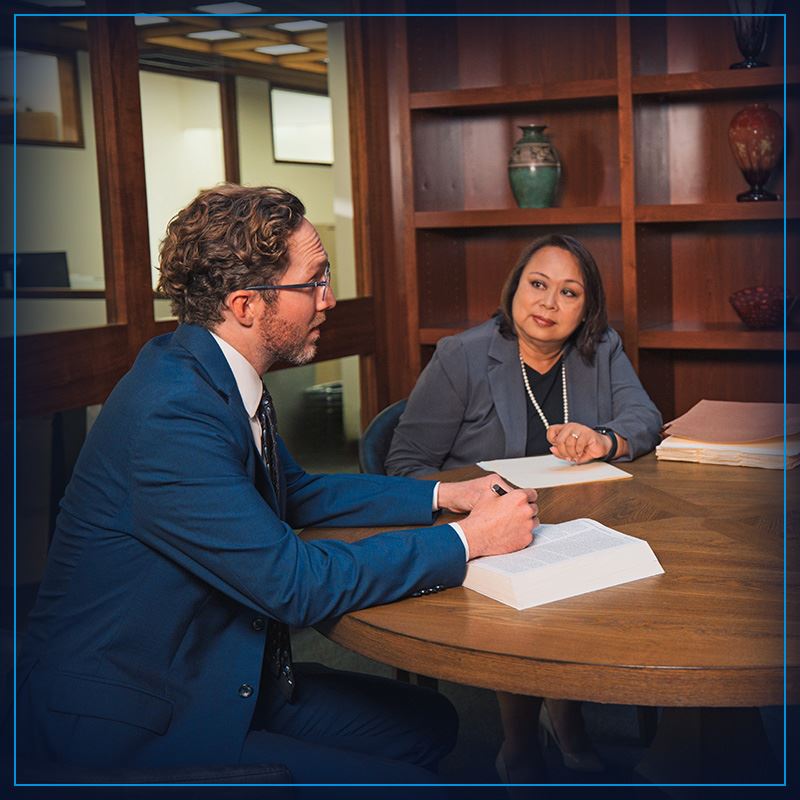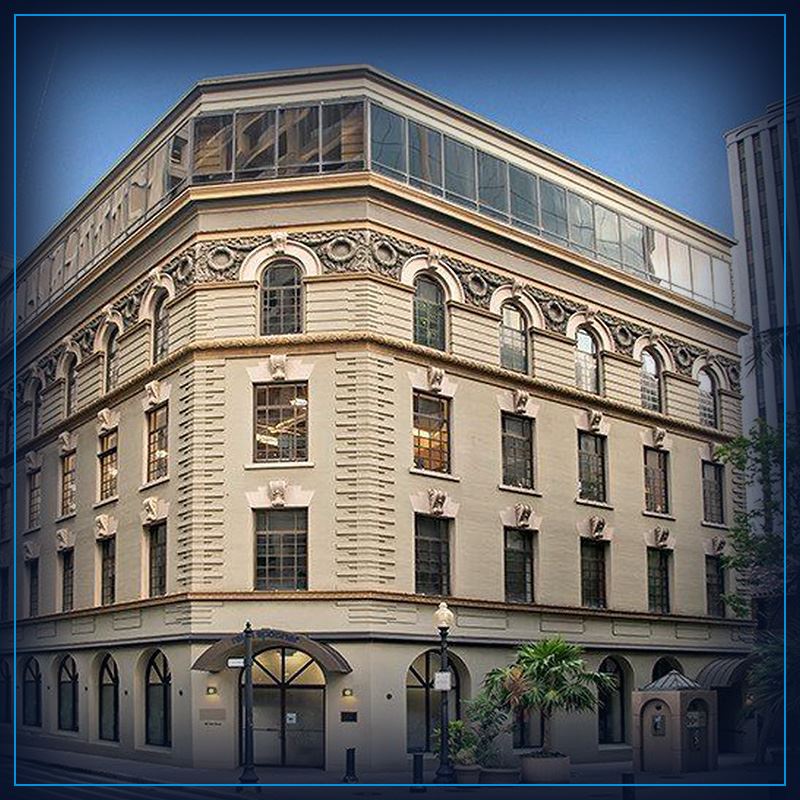
RETAINED FOREIGN OBJECTS
CONTACT A HAWAII MEDICAL MALPRACTICE LAWYER AT OUR FIRM
Going into surgery can be an unsettling experience, regardless of the circumstances. A person who is being operated on is completely at the mercy of the surgeon and the surgical team. They need to be able to trust that they are skilled at what they do, that they will effectively communicate with one another, and will have the ability to bring their full attention to the task at hand. In most cases, all of this is true—or at least true enough to make the surgery successful—but not always.
If you believe that you or a loved one suffered injuries, complications, or death due to a foreign object that was left inside the body after a surgical procedure, contact the Hawaii medical malpractice lawyers at Davis Levin Livingston for a free consultation. You may be entitled to financial compensation for your damages. Our firm has over 40 years of experience and a long track record of success; we have secured hundreds of millions of dollars for our clients.
Contact us now for a free initial consultation: (808) 740-0633.
Types of Retained Surgical Items
Every year, there are approximately 1,500 to 2,000 cases reported where foreign objects are retained inside the body after a surgical procedure is complete. This is often referred to as retained foreign objects, but there is a push to use the term retained surgical items (RSIs) in order to properly distinguish between materials that are unintentionally inserted into and left in the body after a surgical procedure is complete. It would not include foreign objects such as swallowed pennies or bullets that get into the body before an operation begins.
RSIs are classified into four different categories:
- Soft goods
- Sharps
- Instruments
- Small miscellaneous items
Some of the odds and ends that are inadvertently left behind include things like sponges, wound packing materials, catheter tips, and guide wires.
Depending on the area of the body involved and the item left behind, RSIs can cause problems of varying severity. Frequently, some sort of negligence is involved, and the incident constitutes grounds for a medical malpractice lawsuit. Failing to act in a way that a reasonable person would in a specific situation or acting in a way that a reasonable person would not act is considered to be negligent and a preventable human error. Aside from the discomfort associated with these errors, there is an added downside that the expenses incurred are not eligible for reimbursement from the Centers for Medicare and Medicaid Services.
How Do Foreign Objects Get Left in the Body?
There are several reasons that can contribute to an RSI medical error. The most common involve the use of several surgical instruments or the necessity to perform multiple procedures in a single operation. Fatigue of the surgical team also plays a strong role.
Taking steps to prevent fatigue and keep surgeons and their teams alert is a shared responsibility. In many cases, hospitals push staff members to produce more or take on high volumes of patients that can drive up fatigue levels. This may cause surgical teams to feel confused or rushed and can lead to the breakdown of communication during an operation, particularly when there are staffing changes in the middle of an operation.
Less prevalent reasons for objects being left in the body include a high body mass in the patient or a situation where the patient is experiencing an excessive loss of blood.
Discovering and Reporting RSIs
When items are left in the body after surgery, they are not always discovered right away. At times the error is found just hours after an operation and in other cases, years can pass before it is noticed. In many cases, the patient needs to undergo additional surgery and take on the associated risks in order to have the item removed.
The protocol involved for a hospital to report the incidents is somewhat inconsistent and can vary between states. In most cases, serious reportable events (SREs) get reported to the National Quality Forum (NQF).
The NQF has guidelines in place that distinguish between what needs to be reported and what does not. Objects that are already in the body and are left are not reported. Some objects that enter the body unintentionally during a procedure are also not reported if it is determined that removing the item poses a greater danger to the patient than leaving it in place. Also, the NQF only considers an incident reportable when it is not discovered until a surgical procedure is complete and the patient is out of the operating room.
Another OB/GYN consensus group makes similar reporting guidelines for objects that are left in the body after a spontaneous vaginal birth. This reporting period ends one to two hours after the birth when the woman has passed her immediate recovery period.
Fighting Back when Things Go Wrong
When an object is left in the body where it doesn’t belong, it seems logical to assume that an error took place. Many would assume that winning a medical malpractice lawsuit in such a case would be easy, and some may even believe that working with a lawyer on the case wouldn’t be necessary. However, just because a case should be easy doesn’t mean it will be.
One case that should have been easily settled is a case where a surgical towel measuring one foot by two feet was left in a woman’s upper abdomen and was not discovered until four months after her operation. This caused her considerable discomfort, additional medical problems, and put a serious damper on her quality of life. Still, there was no settlement reached during negotiations and the case was forced to trial.
Working with a medical malpractice attorney is vital, as it is a given that the hospital will have a lawyer to help them present their case. If you have experienced problems because of an object that was left in your body after surgery or suspect medical negligence for any reason, Davis Levin Livingston in Honolulu may be able to help.
Contact us for a free case evaluation with an experienced Hawaii medical malpractice attorney. Call (808) 740-0633 or contact us online.


Four Decades of Record Breaking Victories
-
$29,400,000 Medical Malpractice
Physicians at Tripler Army Medical Center failed to order a crucial test that would have detected a twisted gut in a 1-month-old baby, resulting in the loss of 95% of the baby's small intestine and leading to lifelong disability.
-
$9,500,000 Medical Malpractice
Surgeons at Tripler Army Medical Center reattached the small intestine backward during gastric bypass surgery, leading to complications that ultimately resulted in the death of a 31-year-old Army wife and mother of three.
-
$9,000,000 Medical Malpractice
-
$9,000,000 Medical Malpractice
-
$6,500,000 Medical Malpractice
-
$5,600,000 Medical Malpractice
-
$5,000,000 Medical Malpractice
-
$4,250,000 Medical Malpractice
-
$1,800,000 Medical Malpractice

Why Davis Levin Livingston?
-
Available by phone 24/7 & ready to help.
-
Secured tens of millions of dollars on behalf of our clients.
-
Highest malpractice judgment in U.S. history against a military hospital.
-
Includes an experienced medical team including a nursing staff to answer your questions.
-
Mark Davis and Mike Livingston have been recognized as some of the best lawyers in Hawaii.
-
Resources available to advance your expenses; no cost or fees unless Davis Levin Livingston wins your case.

Dedicated Legal Counsel You Can Count On
Helping Families throughout hawaii for over 40 years
-
"Professional, KIND, and understanding"
They are most professional, KIND, and understanding. Thank you Matt Winter for all your help.- Clare T. -
"We wouldn't have chosen any other team!"
Mathew Winter and the whole staff of Davis Levin Livingston guided us every step of the way and made sure we understood everything that was going on. They were always so welcoming and compassionate. Communication was never a problem and emails were answered super fast, especially when we had so many questions. They- Maariel -
"The absolute best firm in Hawaii. Compassion and professionalism at its best!"
Truly a wonderful experience with everyone at the firm. I can't thank you enough for helping provide closure for my family and me during this process. The absolute best firm in Hawaii. Compassion and professionalism at its best!- Daniel -
"After doing extensive research I knew that Davis Levin Livingston was the firm for me due to the success they have had in cases like mine."
After doing extensive research I knew that Davis Levin Livingston was the firm for me due to the success they have had in cases like mine. What surprised me was their personal touch. In the 3- Anthony






.1).1).2401101010550.png)





.1910211111556.png)

.1).1910211114162.png)
.1910211111550.png)